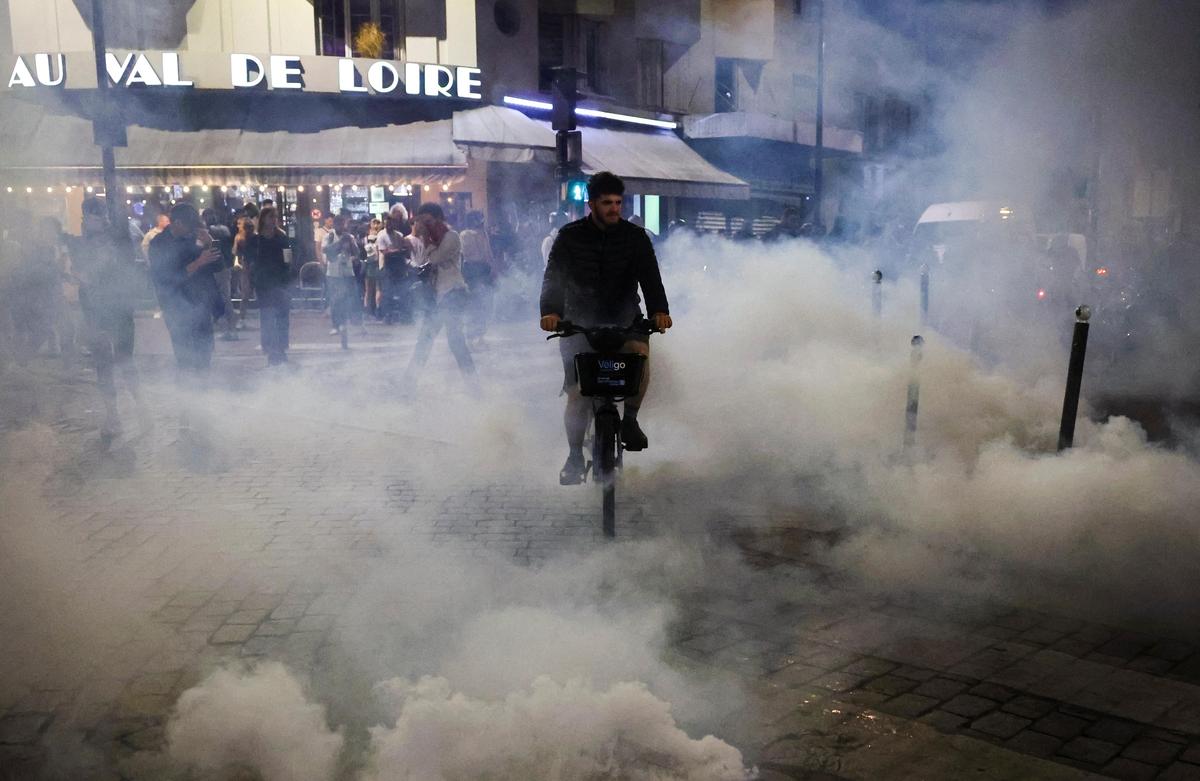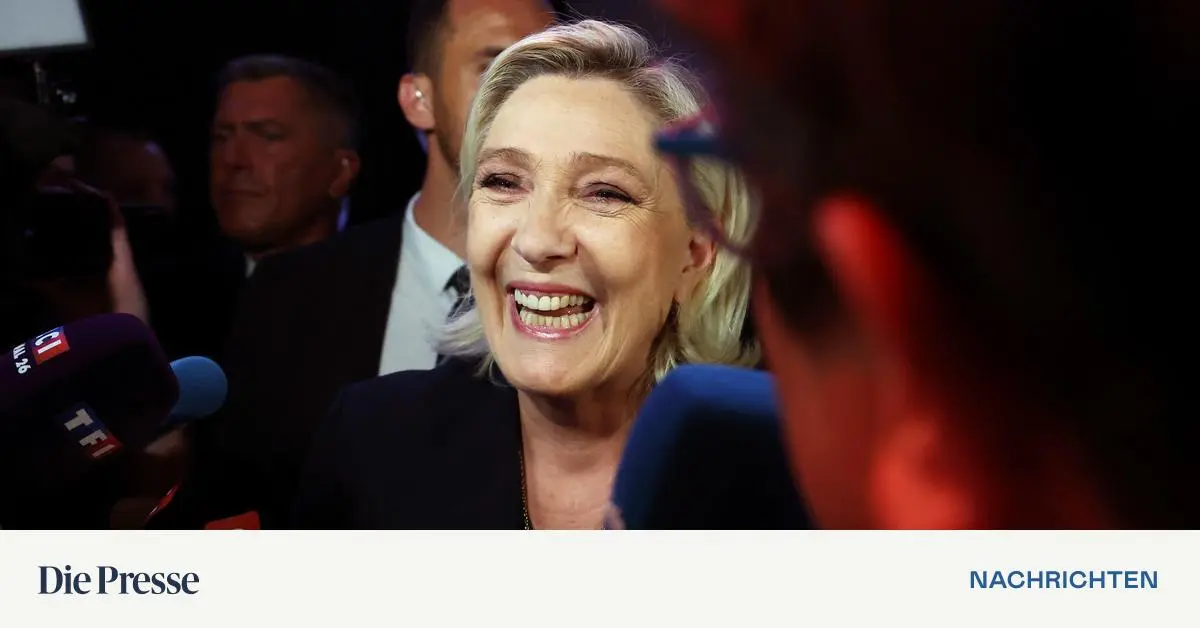In France, politically, no stone has been left unturned. Right-wing populists emerged as the strongest force in the first round of early parliamentary elections. But the second round next Sunday will be decisive.
In France, politically, no stone has been left unturned: this was clear on Sunday evening following the forecasts and estimates based on the results of the first round of the elections for members of the National Assembly. The expectations of the polling institutes were clearly confirmed: the French nationalist right continues its rapid advance after its success in the European elections.
The Interior Ministry announced the official final result on Monday morning: candidates for Marine Le Pen’s right-wing populist National Rally party won 33 percent nationwide. With 28 percent, the left-wing Popular Front (New Popular Front) is ahead of President Emmanuel Macron’s centrist camp, which won 20 percent of the vote.
This particularly illustrates the radical collapse of the liberal centrist parties that were previously represented in Macron’s government coalition. In response to the advance of the far right, the left-wing opposition parties (Socialists, Communists, Greens, and France Insoumise) have come together to form a new electoral union, thus gaining ground.

National Rally (RN) supporters celebrate their success. APA / AFP / Francois Le Presti
March to power
However, the percentages are only an indication of the trend and do not really allow for a precise conversion, since in the majority of constituencies there are run-off elections with two or three finalists. Nevertheless, the march of right-wing populists towards power seems to continue from one election to the next. The Macron coalition was “almost wiped out” in the elections, as Marine Le Pen, the strongwoman of the National Front, rejoiced. Le Pen has tried to give the party founded by her father a more moderate appearance. She may even want to run for president again.
Based on the preliminary results, the private radio station believes that the National Rally parliamentary group could win between 240 and 270 seats in the National Assembly after the runoff elections next weekend. This means that the far-right party will not get an absolute majority to govern.

On Sunday evening, thousands of people took to the streets in Paris and other cities against the far right. Reuters/Fabrizio Bensch
Agreement against RN
Following the electoral success of the right-wing populists, French Prime Minister Gabriel Attal announced the withdrawal of about 60 government candidates from the second round. He said Sunday evening in Paris that this would prevent the right-wing populist candidates from winning. He stressed that “you cannot vote for the National Rally party.”
Runoff elections in a week
According to these calculations, the leftist Popular Front would win 180 to 200 seats, the Macronists, who have been in power so far, only 60 to 90 seats, the conservatives of the Left Party for 30 to 50, and the others 13 to 21 seats. Another institute provided different figures on the public channel France 2, according to which the leader of the National Rally, Jordan Bardella, could obtain an absolute majority of 300 deputies as a potential prime minister.
“Macron's coalition was almost wiped out in the elections.”
Marine Le Pen
Figurehead of the right-wing populist RN party
France's majority electoral system makes such predictions speculative, especially since it is not clear in which of the 577 electoral districts a candidate was elected outright with more than 50 percent in the first round and where runoff elections will be held.
Most importantly, it was already expected that in many constituencies, not just two, but three candidates could compete for one of the seats next Sunday. To do so, you must have won at least 12.5 percent of registered voters. You can also withdraw in favor of another finalist.
High turnout
On the question of how to stop the right-wing nationalists of the National Front with combined forces before they come to power, the views of the left, the conservatives and the Macronists remain divided. No noble agreement is in sight between these traditional opponents. Voter turnout, which was very high in France, shows the awareness of the electorate that this is a date likely to go down in political history. Participation reached a level not seen in France for 27 years, with around 70% of the 49 million registered.

“Food practitioner. Bacon guru. Infuriatingly humble zombie enthusiast. Total student.”








More Stories
Kyiv: Russian Kursk offensive halted
US Presidential Election: Former US Government Officials Warn Against Donald Trump's Election
Netherlands wants to leave asylum system